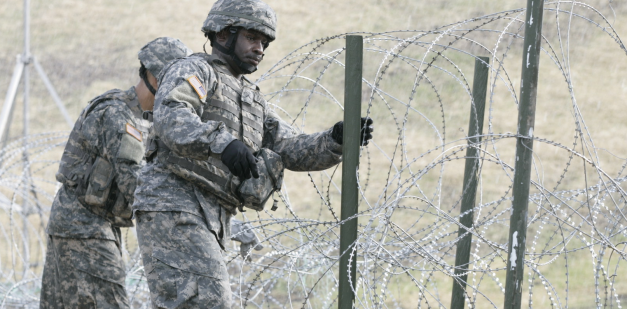
Combat Engineer (12B)
Overview
Combat engineers primarily supervise, serve or assist as a member of a team when they are tackling rough terrain in combat situations. They provide their expertise in areas such as mobility, countermobility, survivability and general engineering.
Job Duties
- Construct fighting positions, fixed/floating bridges, obstacles and defensive positions
- Place and detonate explosives
- Conduct operations that include route clearance of obstacles and rivers
- Prepare and install firing systems for demolition and explosives
- Detect mines visually or with mine detectors
Requirements
Those who want to serve must first take the Armed Services Vocational Aptitude Battery, a series of tests that helps you better understand your strengths and identify which Army jobs are best for you.
Training
Job training for combat engineers requires 14 weeks of One Station Unit Training, which includes Basic Combat Training and Advanced Individual Training. Part of this time is spent in the classroom and part in the field with on-the-job instructions.
Some of the skills you’ll learn are:
- Basic demolitions
- Basic explosive hazards
- Constructing wire obstacles
- Fixed bridge building
- Basic urban operations
- Operating heavy equipment
Helpful Skills
- Ability to use hand and power tools
- Perform strenuous physical activities over long periods of time
- Interest in engineering
- Enjoy working outdoors
Required ASVAB Score(s)
Combat (CO) : 87Learn more about the ASVAB and see what jobs you could qualify for.
Compensation
Total compensation includes housing, medical, food, special pay, and vacation time. Learn more about total compensation.
Education Benefits
In the Army, qualified students can earn full-tuition, merit-based scholarships, allowances for books and fees, plus an annual stipend for living expenses. Learn more about education benefits.
Future Civilian Careers
The skills you learn will help prepare you for a career in the fields of construction, building inspection or building engineering.























